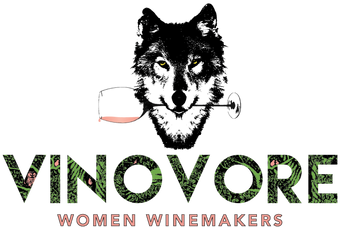FOOD & WINE EN ESPAÑOL - SEPTEMBER 2017
How to become a sommelier?

Maybe you want to free yourself from behind the bar where you work. Or maybe your idea of little light reading is to learn about the last Bordeaux that will come out of the wine caves in southwestern France. Anyway, it seems to become a sommelier, the person whose job is to choose the wines that are served in a restaurant, combine them with dishes and train the staff, or that simply has earned the certified honor of knowing all about the wine, is your dream. But where to start? We turned to four sommeliers for a step-by-step guide.
1. Start from below
If in the long run you want to warm up your wine knowledge muscles in a restaurant, then Lauren Friel, an advanced sommelier and director of wine consulting at the Boston Committee and Dirt Candy in New York, suggests you get a job as a waiter.
"Understanding how the service works, at the table level, is invaluable," he summarizes. "As a sommelier, you're part of the service team, no matter how high you are." Working in the back of the house, where you can see how the restaurant works, will also give you a 360 degree view of the service.
But even better, says Friel, "get a job with someone you respect, someone who has time to teach you." That's because, he explains, being a good sommelier comes down to knowing more than the types of land and the designations of appellation d'origine contrôlée (appeal of controlled origin). "There are tricks and tools of the trade that you will only learn in the field, working with someone who knows what they do and who takes the time to teach you," explains Friel.
2. Choose the correct program.
Search Google for "sommelier certification" and you will find dozens of results, most of the programs reach the same result: obtain a certificate that says you can work as a professional. But how you earn that certification differs from one program to another.
"We all learn differently," says Coly Den Haan, owner, wine director and sommelier of Vinovore in Los Angeles. For Haan, that meant taking classes through the Italian Association of Sommeliers, which divided the classes into viticulture, enology and regions; tastings; Food pairing and service. For Nick Morisi, Yvonne's sommelier in Boston, a 12-week intensive course at Boston University did the trick; He covered about 150 wines and gave an in-depth look at each major wine region in the world, Morisi recalls.
Regardless of the course you take, you must take a test at the end to obtain the title of "sommelier". There are four tests in total, and the last (and most difficult) are the highest sommelier designation: master sommelier. These tests are available through the Court of Master Sommeliers, and there are more details available on its website .
3.Socialize
Andrew Rich, sommelier and beverage manager at the Woods Hill table in Concord, Massachusetts, humbly admits that "making friends and meeting colleagues who are already in the wine world has been one of the most important factors in my development."
Like any career or hobby to improve, "it's important that you have a mentor who has been in the industry longer [than you], who is better and brings a different view of wine," Rich explains. Those who enter the field at the same time as you are people you should also pay attention to: "those relationships will be very beneficial as they work together to gain knowledge and try new wines," says Rich, recalling his visits to a wine store at the beginning his career with his comrades. "They let us open bottles and try them," he tells us. "These are people that I still admire and whose opinion I respect."
4. Travel
Your wine education has not ended after having obtained a certification and a dream job. It's underway, and it's everywhere. (At least, everywhere wine is produced). Friel says you should "do all the wine trips you can. Spend all your vacation time going to wine regions, meeting winemakers, eating at local restaurants and absorbing the wine culture. You can not fully understand a region and, therefore, a wine, until you have been there.





